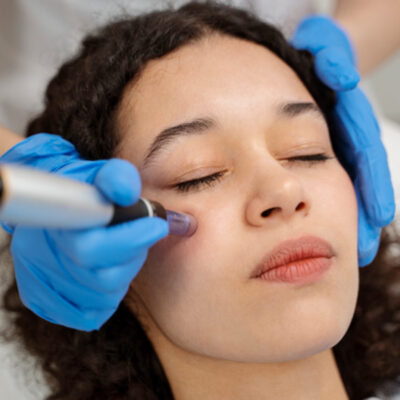Dry, irritated skin can disrupt more than comfort, it can affect focus, mood, and sleep. Yet many continue cycling through products without understanding what actually helps. Itchy skin isn’t always about what’s visible. It’s often the result of barrier breakdown, dehydration, or environmental triggers. The key lies in how you build a skincare routine that actively supports healing without making things worse such as some nice moisturizing body wash or lotion for itchy skin. Below are some lesser-known yet highly effective strategies that professionals recommend for managing and relieving itchy skin.
1. Use a Moisturising Body Wash, Not Just a Mild One
Choosing a ‘gentle’ or fragrance-free cleanser isn’t enough. What many overlook is the moisturising capacity of the body wash. A proper moisturising body wash helps reinforce the skin barrier during cleansing, not after. Look for washes that include humectants like glycerin or ingredients like ceramides that hold onto moisture. Using these daily, especially during colder months or after sun exposure, limits transepidermal water loss and preps the skin to better absorb topical moisturisers.
2. Apply Moisturiser on Damp Skin Within Minutes
Timing matters more than most think. Apply a high-quality moisturiser for itchy skin directly after showering while the skin remains slightly damp. This helps lock in hydration before it evaporates. Waiting until the skin is dry reduces the product’s effectiveness by half. If you’re prone to chronic dryness or tightness, carry a smaller version for midday reapplication especially during travel or after frequent handwashing.
3. Don’t Skip Exfoliation But Keep It Smart
Rough, flaky patches can prevent moisturising products from doing their job properly. Light exfoliation helps by removing dead cells that trap irritants and block absorption. However, harsh scrubs and acids can backfire. The key is moderation and using chemical exfoliants sparingly, no more than once or twice a week. For sensitive or itchy skin, opt for lactic acid or urea-based formulas that exfoliate while hydrating, minimising further irritation.
4. Understand the Ingredients That Calm Itch
Not all soothing agents are made equal. When selecting a lotion for itchy skin, prioritise those containing ingredients known for reducing inflammation or histamine response. Oat extract, allantoin, and panthenol are excellent examples. These don’t just hydrate, they interact with the skin’s immune response to calm the itch at the source. Avoid formulas overloaded with alcohols, synthetic dyes, or even ‘natural’ essential oils, which can worsen sensitivity in compromised skin.
ALSO READ: What to Look for in Itch-Relief Lotions and Moisturizers for Ease
5. Swap Out Hot Water and Heavy Towels
Few realise how damaging their water habits are. Hot showers strip away natural oils, while aggressive towel-drying creates micro-tears that flare up irritation. Opt for lukewarm water instead, and gently pat the skin dry with a soft towel, don’t rub. This simple switch makes a noticeable difference, particularly when followed by a moisturising body wash and immediate moisturiser application.
6. Check the Air Then Check Your Habits
Environmental dryness contributes heavily to itchy skin, particularly during seasonal transitions. Indoor heating systems are a major culprit. Running a humidifier, especially overnight, keeps moisture in the air and supports better skin hydration. Equally, review how frequently you bathe and how long showers last. Long, daily showers may feel soothing but often make things worse by eroding the skin’s lipid layer. Instead, limit showers to 5–10 minutes, and avoid double cleansing unless necessary.
7. Layer Your Products for Maximum Effectiveness
Just slapping on lotion for itchy skin won’t do much if your skin’s barrier is already compromised. Instead, adopt a layered approach. Start with a light hydrating mist or serum if your routine allows, then follow with a thicker cream or balm to seal it all in. This method mimics the skin’s own multilayered defence and helps create longer-lasting relief. It’s particularly effective for those with eczema-prone or severely dry skin.
8. Stay Consistent Even When It Improves
One of the most overlooked habits in skincare? Inconsistency. Many stop treating itchy skin once symptoms ease, only to find them returning soon after. Maintenance is just as crucial as treatment. Keep using a moisturising body wash and apply a moisturiser for itchy skin daily, even if the irritation seems gone. The skin’s moisture barrier requires ongoing support, particularly if you’re prone to sensitivity or live in a challenging climate.
9. Don’t Self-Diagnose Persistent Issues
If the itching continues despite disciplined skincare efforts, it may signal an underlying condition. Issues like contact dermatitis, fungal infections, or allergic reactions can mimic dryness but won’t resolve through topical treatment alone. In such cases, professional intervention becomes essential. Seeking targeted support can prevent mismanagement and reduce the risk of worsening symptoms.
10. Work with Experts Who Understand Skin Health
Rather than continue experimenting blindly with over-the-counter products, consult specialists who understand how skin behaves in different environments and under various conditions. Services from professionals who tailor skincare to your needs help cut through the noise.
Contact AweMed Series and speak with a skin health specialist who can guide you forward. They offer specialised support and evidence-led approaches to managing itchy, irritated skin, helping clients build effective, long-term routines based on what actually works.






